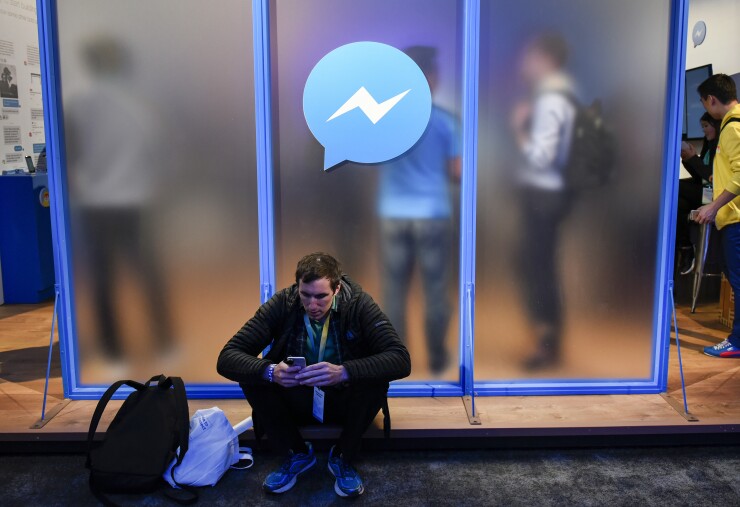Facebook Messenger escalated its commerce initiatives last year by adding
Messenger is now taking its live customer support feature to high-profile companies—recently adding
“We’re talking to more companies about using Facebook Messenger for account-servicing issues like PayPal is doing, because it’s a faster and more efficient way to connect to consumers,” he said, declining to name any specific organizations.

Chudnovsky said customer service is steadily expanding within Facebook separate from its payments operations, as it builds “an ecosystem for buying.”
PayPal will instantly respond to customer queries within Messenger and provide receipts on demand, a heightened level of support compared with thousands of companies that currently have a presence on Facebook Messenger, promising to respond within minutes or hours.
Capital One Financial typically responds to customer queries within a few hours, according to its Messenger profile. Other companies provide “immediate” responses but few promise live customer support.
Chudnovsky expects more companies in the financial services and other industries will follow PayPal to offer live customer service via Messenger, which is a quick, low-cost way to reach its 1.2 billion subscribers.
“Messenger subscribers are constantly connected, creating a streamlined way for companies to resolve problems or provide more product information, and the consumer controls the dialogue,” he said.
One example Chudnovsky cited was how Messenger works for fixing problems for people on the move, versus the fragmented process of calling, texting or emailing a travel company’s customer service department directly.
“It’s easy to get disconnected when you’re calling customer service, but if you’re traveling, Messenger provides a single platform with sequential messages to track and resolve the problem without interruptions,” he said.
Facebook is also expanding the way companies can provide more product information on demand via Messenger.
In coming weeks, customers shopping for used cars within Facebook Marketplace can communicate directly with sales representatives from online car dealerships including Edmunds and Cars.com, Facebook said in a recent
Facebook also is testing new features to enrich the information about products and services the social media network sells in other categories including jobs, concert tickets and home rentals, according to the blog post.
But these steps stop short of directly selling products like cars within Messenger. “Facebook’s role is to provide a place for car sellers and buyers to find and communicate with one another; they don’t participate in the transaction itself,” a Facebook spokesperson said.





